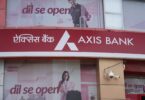MonetaGo is a little different compared to many other blockchain startups. It hasn’t taken an eye-watering amount of funding, and it has a product and customers. Its initial offering is a fraud prevention solution for trade finance and was probably the first production blockchain solution in the sector.
MonetaGo’s start
Founder and CEO Jesse Chenard is an experienced and successful entrepreneur. He came across Bitcoin in 2014 and immediately saw the potential, though initially his focus was on cross-border payments. As a result, he traveled to several countries to sort out regulatory clearance. One of them was India.
There was a fair amount of pushback from banks as soon as Bitcoin came up as a topic. But when talking to Indian banks, he started to see an appetite for blockchain applications just as the Ethereum platform was in beta stage. But they kept raising the question ‘What does the Reserve Bank think of this?’
So Chenard approached the Reserve Bank and explained that there were potential use cases that did not touch payments, such as sharing information, know your customer (KYC), and trade finance. And he asked whether they would be open to a blockchain shared network for these applications. This resulted in MonetaGo taking part in a working group.
India isn’t short of software developers, but MonetaGo wasn’t looking to earn consulting fees. They were happy to build first and prove their case. Plus they provided free advice and feedback on the fly. That combined with the fact that Chenard has strong business development skills, gave them an edge.
India’s Microbusiness trade finance initiative
And the timing was right as the Indian Reserve Bank was orchestrating the creation of new receivable financing initiatives for micro and small businesses. They licensed three entities RXIL, A.TReDS, and M1xhange. Each entity is substantial. For example, RXIL is a joint venture between the National Stock Exchange of India and Small Industries Development Bank of India.
Chenard explained: “Why these trade finance networks were launched originally was to try and provide a non-recourse marketplace, where everyone was KYC’d, where the fraud should be extremely minimal and then open that up to much better financing mechanisms for small businesses. And this is applicable everywhere around the world where small businesses have no credit.”
There was one little problem. How do you stop a trader taking the invoices to all three platforms to get credit? The solution was to put the invoices on a blockchain, and the shared information prevents the fraud. After signing contracts in September last year, MonetaGo launched the network in March.
How it works
The three trade finance platforms wanted to have the benefit of sharing for fraud prevention, but keep the data private from each other. The solution was to create a hash of the invoice elements. A hash is a cryptographic representation of the invoice. Looking at a hash, you see indecipherable text, and you can’t tell anything about the invoice. Plus mathematicians have made it almost impossible to convert a hash back to the original data.
However, if the trader submits the same invoice to another trade finance platform, the hash of the invoice will match the one already on the blockchain, raising a red flag.
So what if the trader tweaks the invoice just a little? MonetaGo additionally hashes some of the elements of the invoice. Using fuzzy matching a very similar invoice won’t be rejected but will receive an amber flag, and the supplier will have to explain.
Technology
MonetaGo is a member of Hyperledger and they use Hyperledger Fabric for this solution. Chenard commented that they like the collaborative feel of the Hyperledger organization and also benefited from seeing the thinking of IBM, Intel, and others.
In some Distributed Ledger Technology or DLT projects, it’s common to segregate the data using Hyperledger Fabric’s private ‘channels’ and R3’s Corda. That usually means only parties to a transaction get to see the data. However, for this anti-fraud solution, it’s important to share all the data between the institutions, though it’s in a hashed form.
Chenard says banks are often concerned about choosing the wrong blockchain, but he think’s they may be asking the wrong question. “What problem are you trying to solve? How long do you expect the software, the technology, to solve that problem for you? And will this technology do it?”
He thinks companies should worry less about whether they’re using the latest and greatest blockchain. He said the question should be: “Is this going to do what I need it to do for the foreseeable future and will I be able to port the functionality to something better in the future?”
Business model
The MonetaGo CEO concluded that banks are not keen on upfront commitments, so the business model is a per transaction fee. But for the fraud checks, there’s a need to have as much market coverage as possible to prevent double financing. “We want to make sure there’s a low barrier to entry because we want to get as much of the network on as possible,” commented Chenard.
“If somebody’s just processing a handful of invoices a month and you’re charging them thousands of dollars for the base fee they’re just going to skip it. But if they’re a high-value financier and happen to be holding an invoice that gets double financed we’re foolish for not making sure they can just do a check for a few pennies.”
So far the volume is tens of thousands of invoices a month, and with new customers slated to come on board, Chenard sees it growing to hundreds of thousands per month soon.
What’s next
MonetaGo is in the process of extending some of the fraud detection features. More trade finance organizations are joining the Indian network, plus they’re expanding to other countries. In addition, they’re working on a separate product which should be announced shortly.
Big picture vision
The CEO has a long-term vision of where this can go. “If you can digitize the process and make sure most of these financiers run their workflow through the blockchain so that it can be verified that the credit check was done and that certain other aspects or legal requirements were done to make sure the financing was valid, you can then securitize those things.”
Many associate securitization with the 2008 crisis, but Chenard sees a big difference. If you digitize and standardize the data, you can run the checks and apply data analytics. This transparency means you don’t just trust the issuer which was a big part of the problem in 2008.
The key take away is by broadening the marketplace with bundling and securitization you can reduce financing costs.
So MonetaGo’s simple but elegant solution to fraud mitigation could help expand access to finance for small businesses right now. And in the longer term, it could play a part in making that financing much more affordable.






